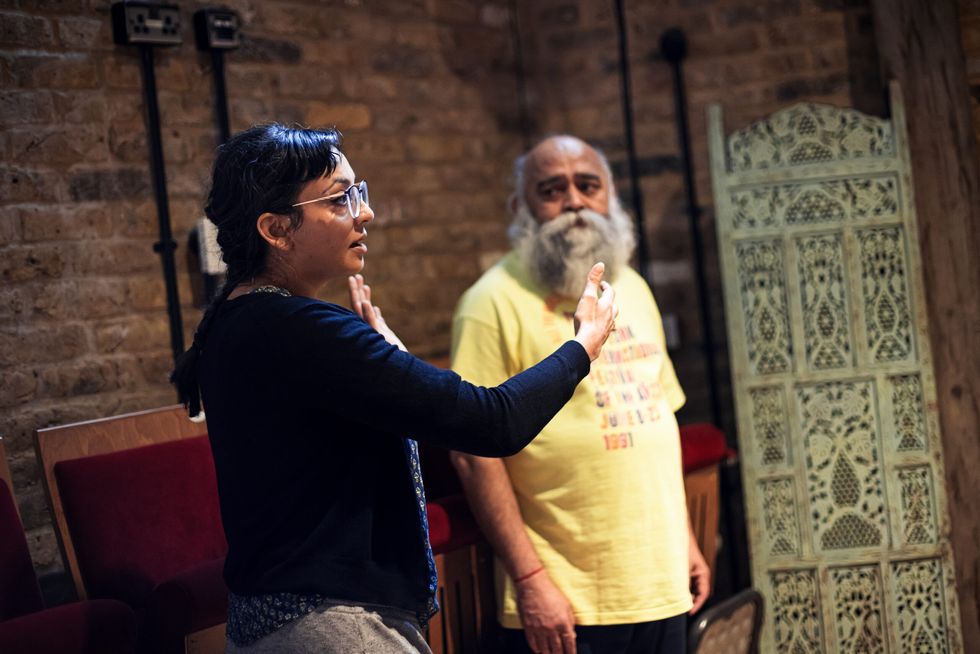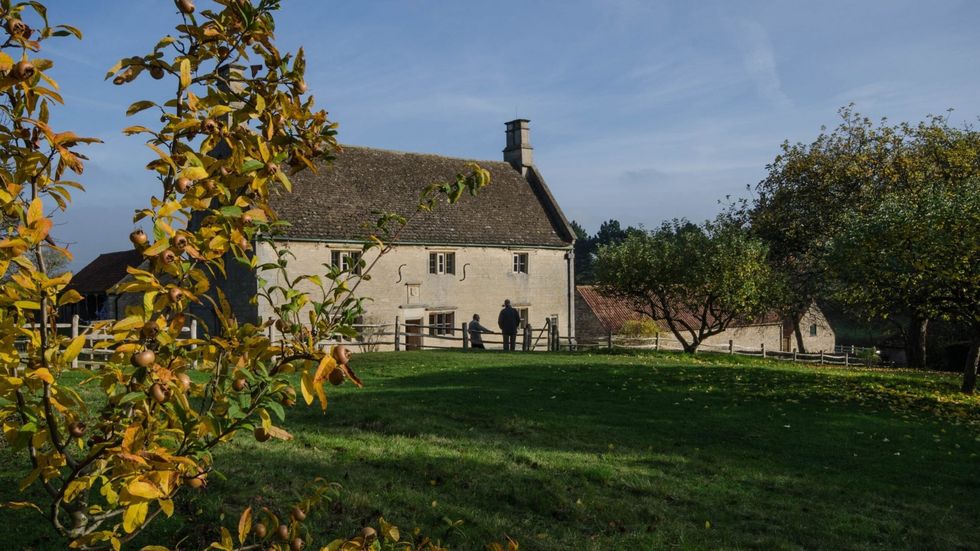AWARD-WINNING director Iqbal Khan decided to take on the new adaptation of the Partition-based play Silence as he wished to build on the legacy of his late friend, former Tara Arts artistic director Abdul Shayek.
Shayek directed the original production at the Donmar Warehouse in 2022 and had developed this version for touring at the time of his death in August 2023.
“Abdul was so humane. He had like this wonderful mix of a warrior’s ambition, but also a child’s compassion and a child’s curiosity, which made him such an attractive person to be around,” Khan told Eastern Eye.
The play examines the legacy of Partition, and the brutal moment in history when the British government divided India, creating Pakistan and later Bangladesh.
Drilling down into the ‘silence’ and shame of those who lived through the conflict, Silence tells the stories of those who survived Partition and came to the UK.

Khan said Silence reflects Shayek’s desire to use Tara Arts as a home for people who are not just artists, but also activists.
“There was a great spirit here at Tara. He was so welcoming to so many different communities and so many young artists to have a platform to try and affect change,” the director said.
“I found him the most generous and ambitious of people. He was always a moment away from laughter or rage at the inequalities in the world – that’s such a wonderful balance in the way we respond to the world.
“It’s a tragic loss, professionally and personally, that his time with us was so sadly cut short because there was so much more to come. But there is his legacy through the Abdul Shayek Directors Fellowship, which hopefully will continue the tradition he started – of radically embracing new voices, new talents to affect real change in the world.”
Silence is based author and journalist Kavita Puri’s award-winning BBC series and accompanying book, Partition Voices: Untold British Stories, which hears the accounts of those who survived the division of the subcontinent after the British left.The title of the play is derived from Puri’s book, which opens with the author’s father breaking his silence of 70 years to talk about his experience of Partition.
With this year being the 77th anniversary of the independence of India and Pakistan, Khan believes it is imperative to hear and record these stories before the Partition generation passes away.
“It’s incredibly important to hear their voices and how it still affects them. It’s such an essential piece of work that Kavita’s done,” he said.
“But to also to do it in a theatrical context, it allows you to share those stories with a much wider audience and in a constrained amount of time, give you some sense of the range of experiences that those people have, it feels like you’re sharing the room with them.
“Over a million people were killed as a result of all the violence that was unleashed. The actual experience of being in the middle of that disgusting, grotesque experience is not something that you can get from a history book, that’s something that you get from the testimony of people who lived through it.”
Though the majority of the testimonies are from the perspective of people of south Asian origin, the play also hears from English people who went and lived in India during the British rule.
“It isn’t just a series of stories of trauma or victims, it’s also a story of resilience. These are extraordinary people who have wit and wisdom. And it’s not just the story of brown people.
“There’s also a testimony from a Dundee man whose father owned a tweed mill and he was one of the privileged as it were. His experience is not one of entitlement and domination, but love for India and love for the place that he grew up in, was born in and lost,” said Khan.
“It’s a very nuanced, moving piece that doesn’t just do what most people might think it does – which is punish the British, but instead reveals the many layered textures of experiences.”
Khan decided to take out a fictional part of the narrative from the original play which sees a young journalist investigating the history of Partition after learning about it from her father.
The idea was that the journalist would provide historical context for the audience. “I felt that the pieces [testimonies] themselves could do that, without inventing that narrative so the feeling and rhythm of the evening is different to what is was in the first version,” said Khan.
“I was given the licence to reimagine the production. It’s a new design, new musical context, and almost all new cast. For those that come and see it for a second time, I hope they see something that has developed and get to experience new emotions.”

The play sees i n t e r a c t i o n s between those who went through Partition and their families – second and third generation British Asians and the impact it has had on all their lives.
“The younger generation need to ask their grandparents about what they went through, because they may discover some difficult stories, but also the heroic stories which will help them get a sense of the magnitude of that generation. The extraordinary resilience and power of those people who came over and made life for us and for those who come after us,” said Khan.
He conceded that for those finding out about Partition for the first time, there is every chance it will make them angry.
“There’s the fear that what you’re going to hear is awful and will make you angry at the British empire. It will make you angry at the forces that were unleashed at the time along sectarian and religious divides, and it should make you angry,” said Khan.
“It should appal us all that you suddenly tell people that you’re splitting up resources based on their religion. People who lived with each other as neighbours, friends in the same village in harmony suddenly start to struggle over resources that you’re saying are only going to be given to you based on your religion. People then start to struggle to define themselves according to those divides in a way they never did before.
“We need to remember what happened and learn lessons from it, because we’re all susceptible to that. We’ve got to resist those sorts of pressures to either attack others based on those things or allow those who are powerful to divide us in that way.”
Khan said the south Asian community could use the arts to remind people of Partition. This part of British history is currently not covered in the UK education system, even though the British were in India for more than 400 years and ruled the country for 89 years.
“It’s such an important chapter in the history of the people who have made this place their own, but also our Britain; it’s a really important chapter in British history,” he said.
“I’m sure there’s a level of shame. I’m sure they have tried to kind of ignore it as much as possible. It’s an embarrassing history, it’s a complicated history, as well. A level of criticism can be directed towards the Indian leaders of the time, Jawaharlal Nehru and (Muhammad Ali) Jinnah.
“It’s something that needs re-centreing, as a lot of the details contained in this history are not taught to us; so, we have a slightly distorted, complacent sense of the British rule of India.
“It’ll change quicker if people like us are in a position to tell these stories by those who holds positions of power in industries, like the media and the arts.”



















 Neetika Knight
www.easterneye.biz
Neetika Knight
www.easterneye.biz

 Raj Ghatak
Raj Ghatak
 Isaac Newton’s birthplace, WoolsthorpeManor, Lincolnshire
Isaac Newton’s birthplace, WoolsthorpeManor, Lincolnshire